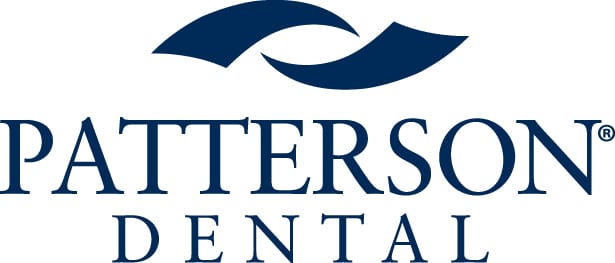By Bruce Bryen, CPA, CVA
Before graduating from dental school, the dental student is inundated with information about joining dental practices from all over the country. It is, of course, in many ways, a life-altering decision. The geographic environment, salary and benefits, and quality of life are just a few of the items being considered by the soon-to-be graduate before he or she decides upon which practice and type of office to join.
The graduates may consider an opportunity as an associate with a chance to be an owner in this choice of recruitment opportunity. Some of them see the lure of working for a DSO and earning a reasonable compensation package with minimal administrative responsibilities as the optimum goal. This would appeal to the graduate seeking an excellent style of life without the hard work and effort needed to build his or her own practice or to take a practice he or she is joining to a higher level of growth and profit by transitioning into it.
There are so many opportunities out there for the dental school graduate that taking time and thinking about the decision is a wise choice.
Also, the availability for consulting with someone who may have the wisdom and experience necessary to assist in making the right call is invaluable and a wise choice. That someone may be the professor who could have had actual work experience on his or her own besides or before becoming an instructor. A dental consultant or dental CPA would be another person to consider but that consult would probably be with a charge being incurred.
We will discuss owning after a learning period, working with a DSO, and other options upon graduation in the following paragraphs.
The graduate working as an associate to ultimately become an owner
Upon graduation, the newly minted, ready for action dentist may have thought of his or her possibilities for employment and decided to choose the dental practice where the ultimate ownership of the practice may have been the lure. The geographic part of the country along with a reasonable compensation package was a driver of which practice to join. The main reason for taking that associateship was the ability to ultimately become the owner of the practice compared to other opportunities without that option.
With this type of situation, the newly titled associate will learn from the current owner and others working at the dental practice. He or she will develop habits taught by these professionals. There will be a challenge to learn many things not taught in dental school, such as the administrative duties that an owner must know how to perform since no one else at the practice probably has that responsibility nor do they want it. This is a good thing if the associate takes advantage of seeing how the owner delegates some of the chores such as office management, accounting, bookkeeping, purchasing, and inventory needs. It can also be part of the learning process of whether buying, leasing, or repairing equipment is addressed to assist in understanding about the profitability of the dental practice. These lessons will teach the associate how to manage an office and how to interact with various suppliers, office personnel, and financial people.
These administratively learned functions will also allow the associate to be on a shorter list for the options of joining a DSO at a later date at a higher level of earning ability than a strictly clinically oriented dentist. Solid administrative credentials are part of a DSO organizational need.
Shall the DSO be the choice of the recent graduate?
DSOs are certainly a heavy recruiter of dental school graduates, along with the rush of the standard dental practice owners. Some recruitment categories of the graduates are by dental practice owners who may own more than one practice, but do not want to be part of a DSO since they won’t accept the ownership limitations or the “feel” of a DSO as part of the patient experience.
What the DSO does offer the associate is the ability to work in a clinical manner and to avoid many administrative headaches that the potential owner may experience as he or she is learning about the clinical performance of the practice. This dentist must also learn the duties needed to be attended to by an owner or someone who may want to become an owner.
DSOs are the coming wave in the profession of dentistry, so it is good to understand what they offer a graduate. Interviews with DSO recruiters are an important part of the graduate’s learning experience and should assist the graduate in making the decision about which type of dental practice to choose for his or her career path. At the age of the graduate, this choice of where to start his or her career is not one that must remain for an entire lifetime in dentistry. This can, however, help the associate with the options that are available and learn where not to concentrate his or her energies for right now.
Another choice for the recent graduate is to obtain a job as an associate and concentrate on his or her clinical skills for a while before delving into the administrative side of the practice for a few years.
Which comes first: The chicken or the egg?
The adage of which comes first can be applied to the dental field as well for the graduate. Does the new dentist start in the traditional sense and learn as much as possible about the clinical side of dentistry? Does he or she hone the skills necessary to be ready for an opportunity when finding one to buy from a transitioning dentist who may be ready to retire or move to another state? Does the dentist hear about the DSO format and make his or her decision after the sales offer of this type of job? Learning while working and earning enough to pay down some of the dental school debt will seem better than the dental school experience to many of the recent graduates. This type of on- the-job training will allow the graduate to be available for better job offers with higher income and all of the above rewards after a few years of this type of situation.
The more the new dentist knows, the more he or she will be worth in the market workplace for years to come.
Bruce Bryen, CPA, CVA is a certified public accountant with more than 45 years of experience and is a part of Baratz & Associates CPAs. He specializes in deferred compensation, such as retirement planning design; income and estate tax planning; determination of the proper organizational business structure; asset protection and structuring loan packages for presentation to financial institutions. He is experienced in providing litigation support services to dentists with Valuation and Expert Witness testimony in matrimonial and partnership dispute cases. He is also a financial writer for several dental journals. You may contact him at 609-502-0691 or at Bryenb@baratzcpa.com.
Note: “Start Arrow Sign” by qubodup is licensed with CC BY 2.0. To view a copy of this license, visit https://creativecommons.org/licenses/by/2.0/
NEXT ARTICLE: Compensation plus benefits: Real talk for someone starting out in a dental practice


